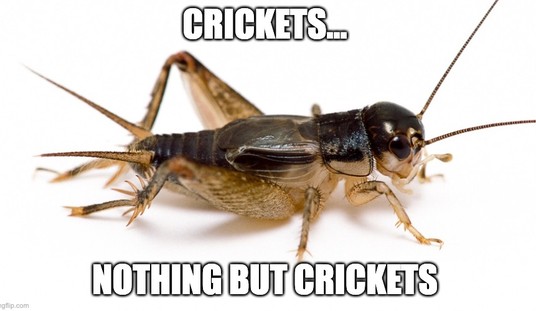This is the headline of the day, if not the entire year. Via Metro UK:
Gene-editing experiment turns fluffy hamsters into ‘aggressive’ mutant rage monsters
Apparently, these scientists (The Metro UK article says Northwestern University but the underlying study is by researchers at Georgia State University) “were trying to increase bonding between the lovable animals but failed”:
A team of scientists at Northwestern University in the US have accidentally created overly-aggressive mutant hamsters following a gene-editing experiment. 🐹
They were trying to increase bonding between the lovable animals but failed.
Let's Discuss 👇https://t.co/jxOmKAMs0z
— Metro (@MetroUK) May 27, 2022
New Scientist magazines say CRISPR technology, which allows scientists to alter DNA and turn genes on and off, “will likely change the world“:
Using the controversial CRISPR technology, researchers at Northwestern University were examining a hormone called vasopressin and its receptor, Avpr1a.
— Metro (@MetroUK) May 27, 2022
These “experts” thought they would “increase bonding and co-operation” with the mutated hamsters:
They opted to try and remove the latter from a group of Syrian hamsters, with the expectation it would increase bonding and co-operation between the lovable little critters.
Avpr1a is understood to regulate things like teamwork and friendship as well as dominance and bonding 🐹 pic.twitter.com/wG7XL5Zqnz
— Metro (@MetroUK) May 27, 2022
But NOPE:
Their expectation proved to be wrong. Very wrong!
Lead researcher Professor H Elliot Albers said:
🗣 'We anticipated that if we eliminated vasopressin activity, we would reduce both aggression and social communication.'
'But the opposite happened.'
— Metro (@MetroUK) May 27, 2022
Recommended
And, yes, there are photos of the “rage monsters” in action:
The academics found the adorable bundles of fluff turned into mutant rage monsters exhibiting 'high levels of aggression towards other same-sex individuals.' pic.twitter.com/ZXsz9QPynl
— Metro (@MetroUK) May 27, 2022
It was a “startling conclusion,” the scientist admitted:
All hamsters, regardless of genotype or sex, exhibited aggression (including chasing, biting, and pinning) when exposed to a nonaggressive, same-sex conspecific in a neutral arena.
Professor Albert admitted the results of the experiment were a 'startling conclusion'.
— Metro (@MetroUK) May 27, 2022
This particular type of hamster was chosen for it similar social structure to humans:
The scientists chose to experiment with Syrian hamsters because, unlike mice, they have a social organisation that’s similar to humans 🐹=😀 pic.twitter.com/ubMBiaHdVA
— Metro (@MetroUK) May 27, 2022
Mistakes were made:
Professor Albert explained:
🗣 'Even though we know that vasopressin increases social behaviours by acting within a number of brain regions, it is possible that the more global effects of the Avpr1a receptor are inhibitory.'
— Metro (@MetroUK) May 27, 2022
This quote from “Jurassic Park” comes to mind: “Your scientists were so preoccupied with whether they could, they didn’t stop to think if they should.”
'We don’t understand this system as well as we thought we did.'
Read more below 👇https://t.co/jxOmKAMs0z
— Metro (@MetroUK) May 27, 2022
***
Related:
Jen Psaki tells Peter Doocy why he’s not qualified to paint her into a masking science corner
Never fails! Masking #Science for elites vs. ‘the help’ was strong at WH Correspondents’ Dinner
























Join the conversation as a VIP Member